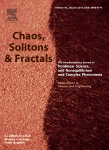
JOURNAL OF MATHEMATICAL SOCIOLOGY
Scope & Guideline
Advancing Interdisciplinary Insights in Sociology and Mathematics.
Introduction
Aims and Scopes
- Quantitative Modeling in Sociology:
The journal emphasizes the use of mathematical and statistical models to analyze social structures and processes, fostering a deeper understanding of sociological phenomena. - Agent-Based and Network Models:
A significant focus is on agent-based modeling and network analysis, exploring how individual behaviors and interactions shape collective outcomes and societal trends. - Interdisciplinary Approaches:
The journal encourages interdisciplinary research that integrates concepts from mathematics, economics, psychology, and other fields to address complex social issues. - Dynamic Systems and Evolutionary Models:
Research on dynamic systems and evolutionary game theory is prevalent, examining how social norms and behaviors evolve over time within different contexts. - Cultural and Behavioral Analysis:
The journal explores cultural dynamics and behavioral patterns, utilizing mathematical frameworks to analyze issues like trust, cooperation, and opinion formation.
Trending and Emerging
- Complex Network Analysis:
There is an increasing focus on the analysis of complex networks, particularly how social connections and structures influence behaviors and outcomes, highlighting the importance of network dynamics in sociology. - Cultural Dynamics and Schemas:
Emerging research on cultural schemas and their influence on social interactions is gaining traction, showcasing the role of culture in shaping societal behaviors and perceptions. - Opinion Dynamics and Polarization:
Studies examining the dynamics of public opinion formation, including the effects of social media and collective behavior, are becoming more prominent, reflecting contemporary societal challenges. - Agent-Based Modeling for Social Issues:
The application of agent-based modeling to explore pressing social issues, such as segregation and cooperation, is on the rise, indicating a strong interest in simulation-based approaches to social phenomena. - Interdisciplinary Methodologies:
There is a growing trend towards interdisciplinary methodologies that blend sociology with fields such as computational science, economics, and psychology, fostering innovative approaches to complex social questions.
Declining or Waning
- Static Sociological Models:
There has been a noticeable decrease in publications focusing on static models of social phenomena, indicating a shift towards more dynamic and process-oriented approaches that account for changes over time. - Traditional Sociological Theories:
Research heavily rooted in classical sociological theories appears to be less frequent, suggesting a movement towards models that incorporate contemporary issues and methodologies. - Purely Descriptive Studies:
The journal seems to be moving away from purely descriptive studies that do not incorporate mathematical modeling, favoring more analytical and quantitative approaches. - Single-Domain Focus:
There is a decline in studies that focus exclusively on one sociological domain, as interdisciplinary and multi-domain approaches gain traction. - Overly Simplistic Models:
Papers that utilize overly simplistic mathematical models without considering the complexities of social interactions are becoming less common, reflecting a demand for richer, more nuanced analyses.
Similar Journals

DISCRETE DYNAMICS IN NATURE AND SOCIETY
Illuminating the Interplay of Nature and Society through Discrete DynamicsDISCRETE DYNAMICS IN NATURE AND SOCIETY is a leading academic journal published by HINDAWI LTD, specializing in the intricate interrelationship between discrete modeling and its applications in both natural phenomena and societal dynamics. Established as an Open Access journal since 1997, it ensures that research outputs are freely accessible to a global audience, fostering collaboration and innovation within the field. Based in the United States, this journal has seen substantial contributions to the domains of mathematics, modeling, and simulation, achieving a commendable Q3 category ranking for its impact in these areas. With its robust focus on empirical research and the theoretical underpinnings of discrete systems, the journal appeals to a diverse readership including researchers, professionals, and students eager to explore and contribute to the ongoing discussions shaping our understanding of dynamics in complex systems.

Research in Mathematics
Fostering groundbreaking discussions in pure and applied mathematics.Research in Mathematics, published by TAYLOR & FRANCIS LTD, is an emerging academic journal dedicated to advancing the field of mathematics through innovative research and scholarship. With an E-ISSN of 2768-4830, this journal aims to foster discussion and dissemination of high-quality mathematical research across a broad spectrum of disciplines, including pure mathematics and applied mathematics. As part of its commitment to accessibility, Research in Mathematics operates on an open-access model, allowing researchers, professionals, and students to engage with groundbreaking studies without barriers. Despite its recent establishment since 2016, and with a current Scopus ranking that positions it in the lower percentile among its peers, the journal offers a platform for new voices in the mathematics community. Its objectives include enhancing visibility for novel mathematical concepts, methodologies, and applications that can significantly impact the academic and professional landscapes. Authors are encouraged to submit original research articles, review papers, and case studies that push the boundaries of mathematical knowledge.

Advances in Mathematical Physics
Unlocking New Dimensions in Scientific InquiryAdvances in Mathematical Physics is a premier open-access journal published by HINDAWI LTD, dedicated to the dissemination of research in the fields of applied mathematics and physics. With its ISSN 1687-9120 and E-ISSN 1687-9139, this journal has been a vital platform for innovative studies since its inception in 2009, fostering a collaborative environment for researchers and professionals alike. The journal features a wide range of topics, including but not limited to mathematical models, computational physics, and interdisciplinary applications, thus attracting a diverse readership. Ranked in the Q3 quartile for both Applied Mathematics and Physics and Astronomy, it serves as a significant resource for academics looking to explore cutting-edge developments and theoretical advancements. With an emphasis on open accessibility, Advances in Mathematical Physics ensures that research findings are readily available to the global academic community, leveling the playing field for emerging scholars and seasoned researchers. By consistently showcasing high-quality manuscripts, the journal contributes substantially to the fields of mathematics and physics, encouraging scholarly dialogue and advancing knowledge across a myriad of applications.

ACTA BIOTHEORETICA
Exploring the Frontiers of Knowledge Across DisciplinesACTA BIOTHEORETICA is a distinguished academic journal published by Springer, offering a vital platform for the dissemination of research within various interdisciplinary fields including Agricultural and Biological Sciences, Applied Mathematics, Biochemistry, Genetics and Molecular Biology, Environmental Science, and Philosophy. The journal, with its extensive history since its inception in 1935, holds a significant impact factor within its respective categories, ranking Q2 in Agricultural and Biological Sciences and Q1 in Philosophy as of 2023. Its archives, spanning from historical publications to contemporary studies, serve as a rich repository for scholars, professionals, and students dedicated to advancing knowledge in these areas. ACTA BIOTHEORETICA invites contributions that push the boundaries of theoretical exploration and practical application, with the aim of fostering an understanding that bridges science and philosophy. Although not open access, the journal maintains wide accessibility through its integrated digital platforms, enhancing the reach and impact of published work worldwide. Its central office located in Dordrecht, Netherlands further accentuates its international appeal and significance.

Network Science
Charting the evolution of network science for a connected future.Network Science is a distinguished journal published by Cambridge University Press, dedicated to advancing our understanding of complex networks across various domains, including communication, sociology, and psychology. Since its inception in 2013, the journal has consistently aimed to provide a platform for groundbreaking research that explores the structure and dynamics of networks, thereby facilitating interdisciplinary collaboration and innovation. With an impressive ranking in the Q2 category for Communication and Sociology, and Q3 for Social Psychology, Network Science has carved out a significant niche within the academic community, reflected in its reputable metrics—ranking #112 out of 511 in Communication and #333 out of 1466 in Sociology and Political Science according to Scopus. The journal plays a pivotal role in shaping the landscape of network theory and analysis, making it an essential resource for researchers, practitioners, and students eager to delve into the intricate relationships that underpin social systems. Access to this journal fosters an environment of scholarly exchange and stimulates further research in the rapidly evolving field of network studies.

Applications and Applied Mathematics-An International Journal
Advancing Mathematical Insights for Real-World SolutionsApplications and Applied Mathematics-An International Journal, published by Prairie View A & M University, Department of Mathematics, serves as a pivotal platform for disseminating high-quality research in the interconnected realms of mathematics and its practical applications. With its ISSN 1932-9466, this journal invites contributions focused on novel methodologies, theoretical advancements, and empirical studies that underscore the vital role of mathematics across diverse disciplines. Although it currently does not offer open access options, the journal is committed to advancing knowledge and fostering collaboration among researchers, professionals, and students seeking to explore the application of mathematical concepts to real-world problems. As it gains prominence in the academic community, Applications and Applied Mathematics aspires to maintain a robust editorial process to ensure the rigor and integrity of published research, subsequently contributing to the advancement of both theoretical and applied mathematics.

Computational and Mathematical Organization Theory
Advancing organizational insights through mathematical innovation.Computational and Mathematical Organization Theory, published by SPRINGER, is a prominent journal specializing in the intersection of mathematical and computational methodologies within organizational theory. With its ISSN 1381-298X and E-ISSN 1572-9346, this journal has established itself as a critical source of cutting-edge research since its inception in 1995 and continues to thrive with contributions spanning from 2005 to 2024. Noteworthy is its recognition in the 2023 quartile rankings, where it holds a Q2 status across multiple categories, such as Applied Mathematics, Computational Mathematics, and Decision Sciences, reflecting its broad analytical scope and the relevance of its findings to diverse fields. Furthermore, its Scopus rankings position it favorably within the academic community, underscoring its significant impact in Applied Mathematics (Rank #156/635), Computational Mathematics (Rank #59/189), and Modeling and Simulation (Rank #122/324). Although the journal is not open access, it provides crucial insights and methodologies that aid researchers and practitioners in enhancing organizational processes through mathematical and computational lenses. For scholars seeking to advance their understanding and application of these interdisciplinary approaches, Computational and Mathematical Organization Theory serves as an invaluable resource in the ever-evolving landscape of academic inquiry.

ADVANCES IN COMPLEX SYSTEMS
Innovating Insights into Complex InteractionsADVANCES IN COMPLEX SYSTEMS is a prominent journal dedicated to the multidisciplinary exploration of complex systems, published by World Scientific Publishing Co. PTE LTD in Singapore. With an ISSN of 0219-5259 and E-ISSN of 1793-6802, the journal has been a vital platform for researchers and professionals since its establishment in 2004, contributing to the field of Control and Systems Engineering as well as a broader multidisciplinary audience. The journal currently holds a respectable Scopus rank of #240/321 in Engineering Control and Systems Engineering, placing it in the 25th percentile and reinforcing its commitment to fostering innovative research. Although it does not operate under an open access model, the advances published within are essential for those seeking to understand and harness the complexities of system interactions. As it converges towards its upcoming milestone in 2024, ADVANCES IN COMPLEX SYSTEMS remains a crucial resource for scholars, providing insights and advancements that drive the understanding of complex phenomena across various domains.

Complex Systems
Advancing Knowledge in Complex Systems ScienceComplex Systems is a pivotal journal published by Complex Systems Publications Inc, specializing in the interdisciplinary field of complex systems science. With an ISSN of 0891-2513, it focuses on advancing the understanding of complex phenomena across various domains, including computer science and control engineering. Operating from the United States, this journal has established itself as a credible source with a current impact factor reflecting its relevance—ranking in the Q3 category for both Computer Science (miscellaneous) and Control and Systems Engineering as of 2023. Although it does not offer Open Access, Complex Systems aims to facilitate the exchange of cutting-edge research and innovative methodologies, making it indispensable for researchers, professionals, and students eager to explore and contribute to the field. With coverage spanning from 2012 to 2024, it strives to foster a deeper understanding of the principles governing complex systems, thus paving the way for future technological advancements and theoretical developments.

CHAOS SOLITONS & FRACTALS
Innovating the Future of Nonlinear Dynamics ResearchCHAOS SOLITONS & FRACTALS, published by Pergamon-Elsevier Science Ltd, stands as a premier journal in the fields of mathematical physics, applied mathematics, and nonlinear dynamics. With an impressive impact factor and a 2023 ranking placing it in the Q1 quartile for both applied mathematics and mathematical physics, this journal serves as an essential platform for groundbreaking research and innovative theories that explore the complex interplay between chaos, solitons, and fractal structures. Established in 1991 and converging research until 2024, the journal features rigorous peer-reviewed articles that appeal to academics, professionals, and students alike, facilitating the dissemination of knowledge within a community passionate about statistical and nonlinear physics. Although not open access, its rich content is critical for those seeking to deepen their understanding and advance their work in these dynamic and multifaceted areas of study.